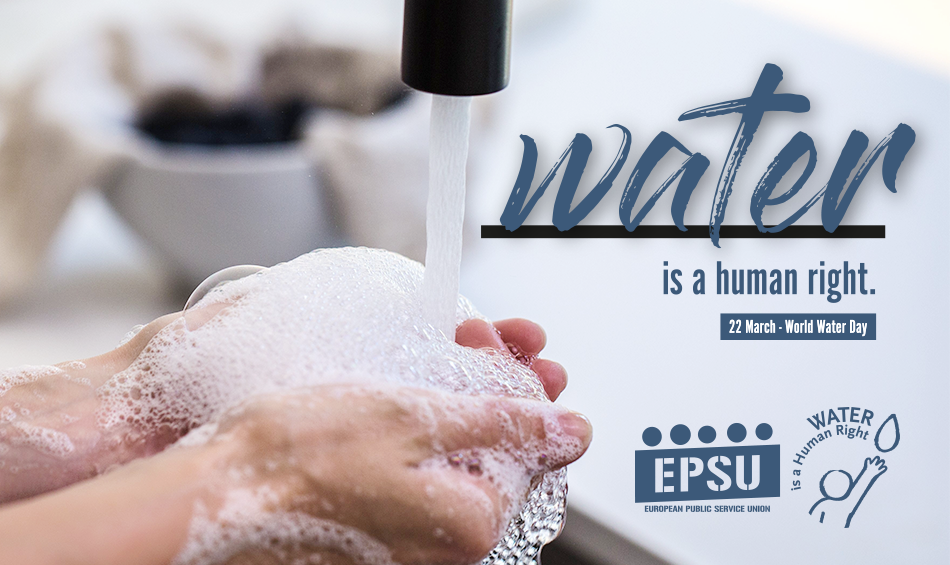But however essential water might be, it is not a given. 770 million people lack even basic access to water services. Over two billion people live in water-stressed countries. Even in Europe, around ten million people currently do not have access to sanitation facilities. Many people with low incomes live under threat of disconnections if they are unable to pay their bills. These numbers are expected to be exacerbated in some regions as a result of climate and population changes.
The above examples only touch upon access to water. Water is an intrinsic factor defining the severity of natural disasters; from droughts and floods, to landslides and wildfires. Water influences food scarcity, migration, public health and just about any economic aspect that can be thought of. Moreover, transboundary water bodies often place basin countries at the centre of volatile water tensions. The development of large transboundary water projects can create irrevocable impacts on the environment and historical heritages. It’s clear that water has an inherently intersectional dimension - one which mostly affect the most vulnerable parts of the societies throughout the world and the environment as a whole.
As a consequence, water has been at the centre of decades of struggles across the world, from the Nile Basin to the Aral Sea. These fights have inspired activists as well as key institutions around the world. Europe has seen its own fights for water in recent years – often led by workers.
In Thessaloniki, workers and citizens fought for over fifteen years against the privatization of local water services, securing a 98% victory in a referendum and a Council of State vote that the public must have the right to control the water companies. In Ireland, water service workers fought unions to make sure that water services are delivered for the public good and not private profit. As a result of their struggles, the Irish government has committed to hold a referendum on the public ownership of water services but failed to set a date. They’re continuing their fight to hold the government to its pledge.
World Water Day is a day to remind policymakers of their obligation to protect access to safe drinking water and sanitation for all. In 2010, the United Nations recognised water and sanitation as a human right and acknowledged that clean drinking water and sanitation are essential to the realisation of all human rights.
This World Water Day 2023 marks a special anniversary for EPSU. The Right to Water campaign – the first ever successful European Citizens Initiative (ECI) – celebrates its tenth birthday in 2023. The campaign gathered over almost two million signatures from citizens across Europe calling for water to remain a public service and public good. The campaign called for an end to the liberalisation of water services; guaranteed water and sanitation for all in Europe; and universal access to water and sanitation for all.
The successful ECI resulted in the European Commission partially addressing our demands with the Drinking Water Directive, adopted by the European Parliament in 2020. The directive includes a new article on access to water, requiring Member States to improve or maintain access to water intended for human consumption for all. The newly proposed Urban Wastewater Directive also takes steps to protecting the right to sanitation, showing the continued impact of the ECI.
These are steps forward – but we’re running a marathon. If the goal is to enshrine the right to water in European legislation, we are still far from the finishing line. The directive allows too much variability for Member States to avoid full implementation. The right to water is under continuous threat from profiteers and other private interests, now being pushed as ‘public private partnerships’ by policymakers under the influence of corporate interests.
As the ECI moves into its tenth year, the fight remains more vital than ever. The EU and governments across Europe must act now to invest in public services and protect human rights. This fight is not just the fight of water workers. It is not just about water. It is a fight for the future of our society and our planet.
By Jakob Embacher (Policy Officer for Utilities, European Federation of Public Service Unions) and Yağmur Dönmez (Global Labour University)


